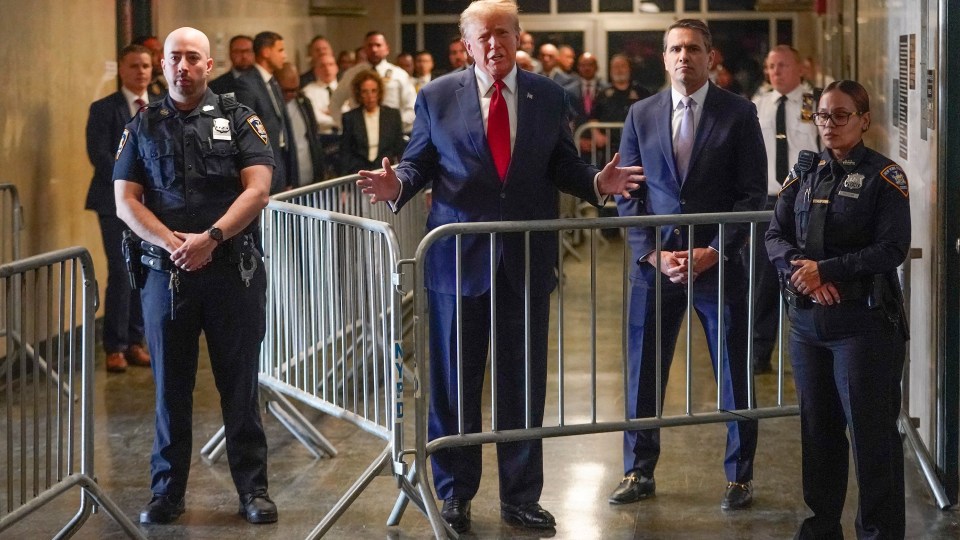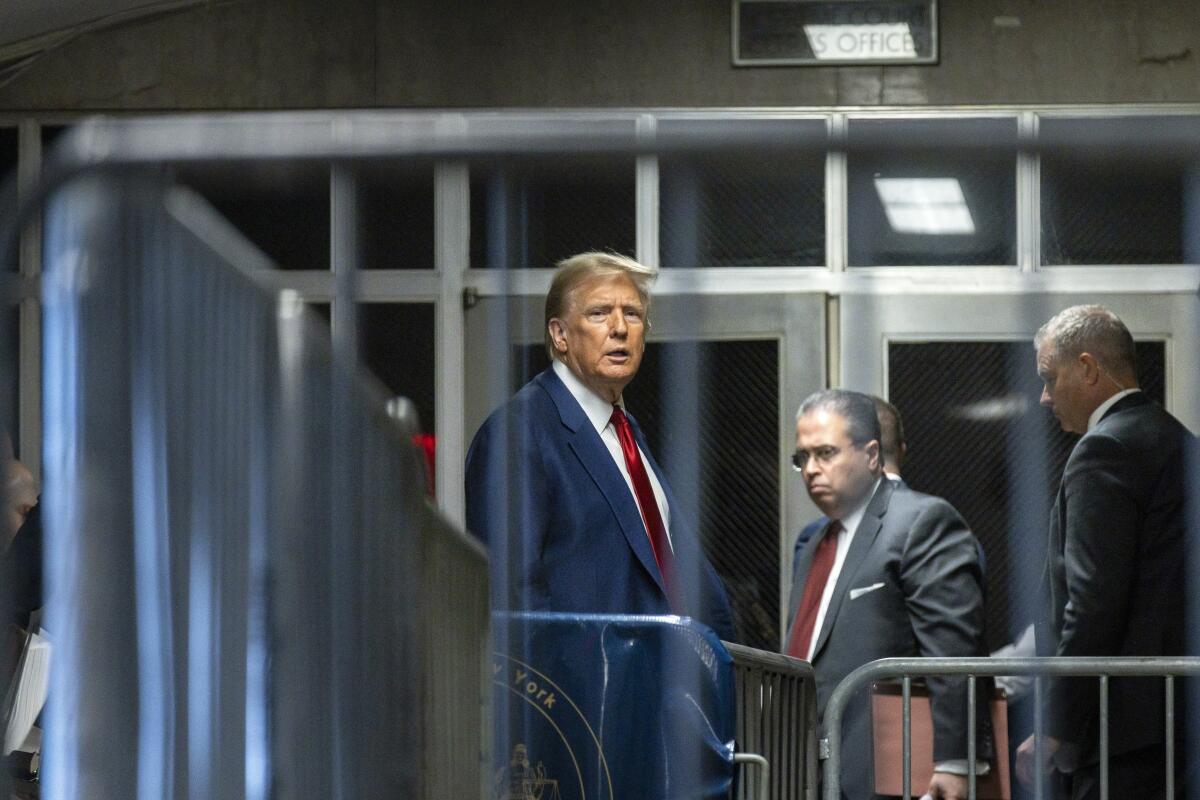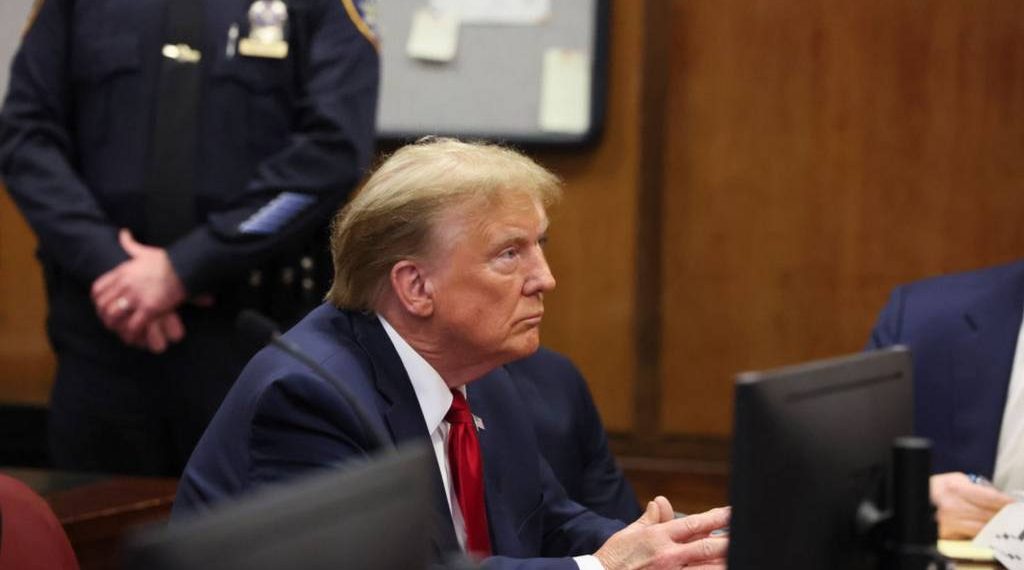Former President Donald Trump is poised to enter his first criminal trial, marking a historic moment as the first ex-president to face such charges. The trial, slated to commence on April 15 in Manhattan, focuses on hush money payments made to adult film star Stormy Daniels during the 2016 presidential campaign.
Trump, aged 77, maintains his innocence against 34 counts of falsifying business records, vehemently denying any wrongdoing.

The allegations stem from a $130,000 payment arranged by Trump’s lawyer, Michael Cohen, to silence Daniels regarding an alleged sexual encounter.
Despite Trump’s dismissal of the encounter and labeling the payment as a response to “false and extortionist accusations,” prosecutors argue that Trump orchestrated the transaction and subsequently falsified records to conceal it.
This trial holds significant political and legal ramifications as Trump gears up for a potential return to the White House, challenging incumbent President Joe Biden in the upcoming November election.
While Trump faces multiple legal challenges, including federal charges related to election subversion, the timing of this trial underscores its potential impact on voter perceptions.
The trial’s focus on events surrounding the 2016 election adds to its gravity, with prosecutors framing the case as indicative of Trump’s efforts to sway the outcome through illicit means.

Despite previous investigations and guilty pleas from associates like Cohen, Trump maintains his innocence and denounces the charges as politically motivated.
Observers note that the trial’s outcome could sway public opinion, particularly among undecided voters, in what is expected to be a closely contested election.
The judge overseeing the case has imposed restrictions on Trump’s public comments regarding trial participants, emphasizing the trial’s seriousness and its potential to influence the political landscape.














